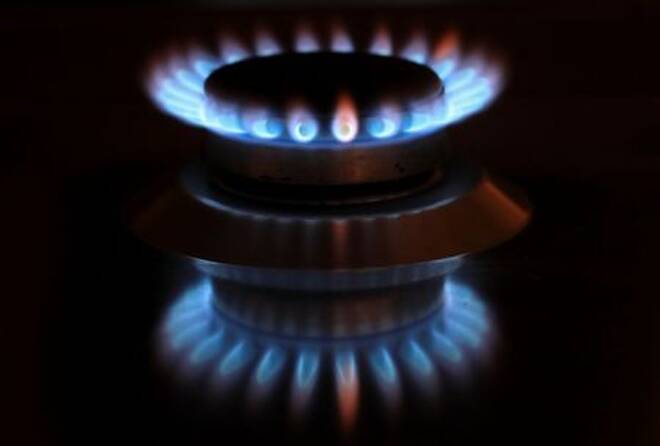Advertisement
Advertisement
EU Leaders Lock Horns Over Response to Energy Price Spike
By:
BRUSSELS (Reuters) -EU leaders on Thursday struggled to agree a common response to soaring energy prices, which have exposed familiar rifts over the bloc's climate change goals and divided countries on whether the price crunch warrants an overhaul of EU energy market rules.
The European Commission last week published a “toolbox” outlining the national measures governments can take and said Brussels would look into longer-term options to address price shocks.
EU leaders debated those options on Thursday, but halted the talks after a few hours and planned to return to the issue after a debate on the deepening row between the EU and Poland over the rule of law.
Countries are split over how the EU should tackle soaring energy prices, as their citizens face higher bills with winter approaching.
Most EU countries have already drawn up emergency action plans to shield consumers, including energy tax cuts and subsidies for poorer households.
A draft of their summit conclusions, seen by Reuters, invites countries to urgently use the toolbox “to provide short-term relief to the most vulnerable consumers and to support European companies”.
Longer-term measures, however, are more contentious. One EU diplomat said a sticking point in Thursday’s talks was some countries’ demands that the EU overhaul its carbon market.
FAMILIAR TENSIONS
Poland and the Czech Republic have asked the EU to limit financial speculators’ participation in the carbon market, which they say said has helped push CO2 prices to record highs.
Brussels has previously resisted such calls, warning that intervening in the scheme would erode trust in the market. Countries including Germany and the Netherlands have warned against intervention, while other states are wary of overhauling regulations in response to a short-term crisis.
European gas prices have hit record highs as tight supply has collided with economies emerging from the COVID-19 pandemic, amid surging CO2 prices and lower-than-expected gas deliveries from Russia. The Commission said gas prices were expected to stabilise at a lower level by April.
Spain, Italy and Greece are also pushing for an EU response to the price spike, including by launching joint gas buying among EU countries to form strategic reserves.
The draft conclusions for the summit did not endorse any specific actions, suggesting leaders will pass the issue on to an emergency meeting of EU energy ministers on Oct. 26.
A preparatory note ahead of that meeting, seen by Reuters, said ministers would debate “what further measures at EU and Member State level, including the use of EU financial tools, could be envisaged”.
The price spike has also stoked familiar tensions over the EU’s policies to fight climate change, with Poland calling for Brussels to change or delay some planned green measures.
Hungarian Prime Minister Viktor Orban on Thursday dismissed EU climate policy plans as a “utopian fantasy”. That view is at odds with other countries that say high gas prices should speed up Europe’s shift to renewable energy to reduce countries’ exposure to volatile fossil fuel prices.
For a look at all of today’s economic events, check out our economic calendar.
(Reporting by Kate Abnett Editing by John Chalmers, Nick Macfie, Mark Potter and Andrew Heavens)
About the Author
Reuterscontributor
Reuters, the news and media division of Thomson Reuters, is the world’s largest international multimedia news provider reaching more than one billion people every day. Reuters provides trusted business, financial, national, and international news to professionals via Thomson Reuters desktops, the world's media organizations, and directly to consumers at Reuters.com and via Reuters TV. Learn more about Thomson Reuters products:
Advertisement
